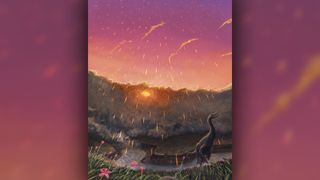
Mindy Weisberger
Mindy Weisberger is a science journalist and author of the book "Rise of the Zombie Bugs: The Surprising Science of Parasitic Mind-Control," published by Hopkins Press. She formerly edited for Scholastic and reported for Live Science as a channel editor and senior writer. She has reported on general science, covering climate change, paleontology, biology and space. Mindy studied film at Columbia University; prior to Live Science she produced, wrote and directed media for the American Museum of Natural History in New York City. Her videos about dinosaurs, astrophysics, biodiversity and evolution appear in museums and science centers worldwide, earning awards such as the CINE Golden Eagle and the Communicator Award of Excellence. Her writing has also appeared in Scientific American, The Washington Post, How It Works Magazine and CNN.
Latest articles by Mindy Weisberger

What was megalodon's favorite snack? Sperm whale faces
By Mindy Weisberger last updated
New analysis of fossil skulls from sperm whales that lived millions of years ago shows that numerous species of ancient sharks preyed on the whales … and ate their faces.

Threatened sharks are turning up in pet food, DNA testing shows
By Mindy Weisberger last updated
Scientists identified shark DNA in pet food products, none of which listed shark meat in the ingredients.

'Lost tapes' from Chernobyl show the haunting fallout of the nuclear disaster
By Mindy Weisberger published
Recently unearthed footage that documented the aftermath of the Chernobyl accident remained hidden for decades.

What caused this massive megalodon’s mega-toothache?
By Mindy Weisberger published
A malformed megalodon tooth hinted at an injury that caused it to develop with a split down the middle.

Cannibal wasp babies eat their siblings, because nature is brutal
By Mindy Weisberger published
When food starts running low in wasp larvae nurseries, the babies resort to cannibalism in order to survive.
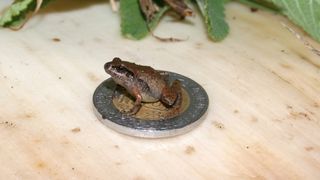
Newfound species of wee frogs found in Mexico can fit on your fingertip
By Mindy Weisberger published
Scientists recently described six new species of miniature frogs that inhabit forest floors in Mexico and Guatemala.
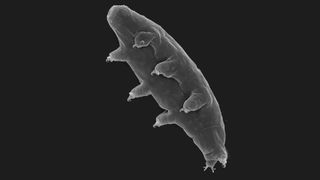
Tardigrades hitch risky rides inside snail bellies, then escape in their poop
By Mindy Weisberger published
Scientists recently found that tardigrades can travel by snail to reach new destinations that were otherwise beyond their reach.
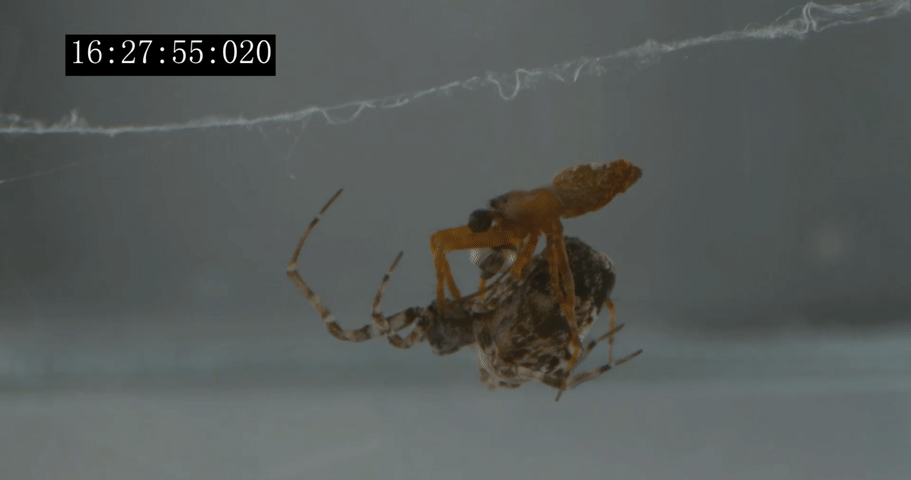
These male spiders use built-in leg catapults to escape sexual cannibalism
By Mindy Weisberger published
Once mating is over, male orb-weavers catapult off the bodies of females to avoid being eaten, moving at a speed that's too fast to glimpse with the naked eye.

Tardigrades may hitchhike on snails ... and then suffocate in their slime
By Mindy Weisberger published
Can tardigrades travel by snail? New experiments suggest that it's possible — and hazardous.
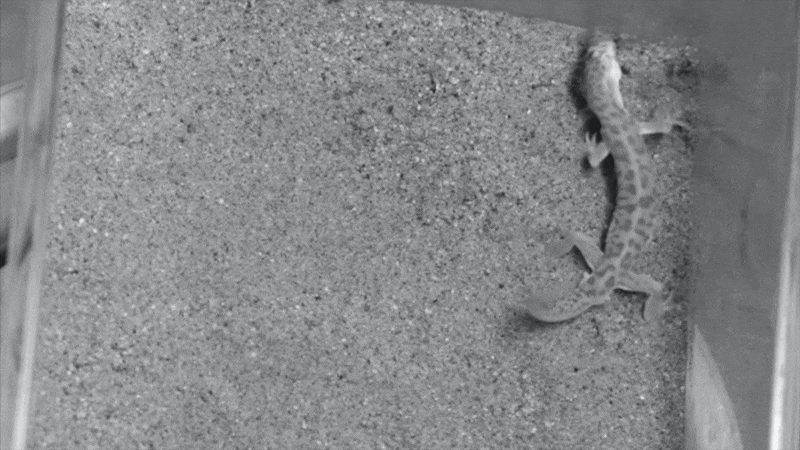
'Berserker' geckos slam scorpions into oblivion before eating them, epic new footage shows
By Mindy Weisberger published
Violent head shaking helps normally placid geckos subdue dangerous scorpion prey.

Hubble spots most distant star ever seen, 28 billion light-years away
By Mindy Weisberger published
A star that formed when the universe was young was recently spotted by Hubble space telescope. It's the most distant star ever seen and could be 500 times as massive as the sun.
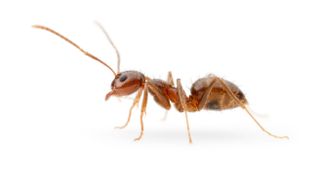
Invasive crazy ants are being annihilated by murder fungus. Good.
By Mindy Weisberger published
Crazy ant colonies in North America are being driven to extinction by a fungus that targets the invasive pest species.

In global climate strike, youth demand action worldwide
By Mindy Weisberger published
On March 25, thousands of young people around the world mobilized to demand government action to curb climate change.
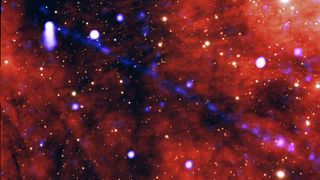
NASA caught a dead star spewing antimatter across space in dazzling new image
By Mindy Weisberger published
A relatively small pulsar (a dense, collapsed and rapidly-spinning star) belched out a giant filament containing matter and antimatter particles that streamed for trillions of miles.
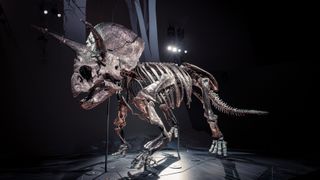
Meet 'Horridus,' one of the most complete Triceratops fossils ever found
By Mindy Weisberger published
A Triceratops skeleton nicknamed "Horridus" is over 85% intact and is one of the most complete Triceratops fossils in the world.
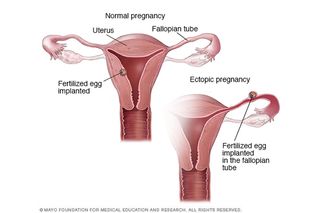
Ectopic pregnancy: Signs, symptoms & treatment
By Cari Nierenberg published
An ectopic pregnancy occurs when a fertilized egg implants outside of the uterus or not within the uterine cavity. Such pregnancies are not viable and can be life-threatening.
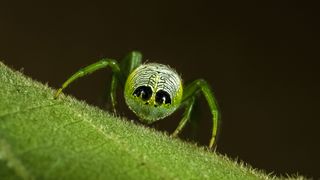
Anal bulbs, detachable butt hairs and booty camouflage: Welcome to #InverteButtWeek on Twitter
By Mindy Weisberger published
Invertebrate butts are both diverse and bizarre, and are being celebrated on Twitter in art, photos and video.

Rare 14th-century gold 'leopard' coin could sell for 140,000 British pounds
By Mindy Weisberger published
When a rare 23-karat gold coin from 1344 hits the auction block in the U.K., it could fetch up to 140,000 British pounds.
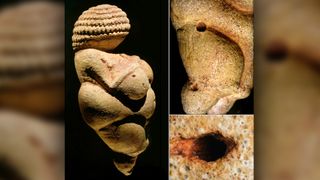
Voluptuous 'Venus' of the Ice Age originated in Italy
By Mindy Weisberger published
The 30,000-year-old Venus of Willendorf figure is named for the site in Austria where it was discovered in 1908, but new analysis reveals that the stone came from northern Italy.
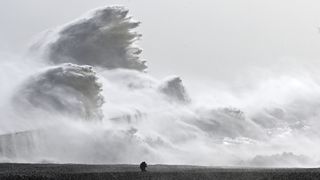
Humanity faces 'grave and mounting threat' of climate change — unless we act, IPCC report reveals
By Mindy Weisberger published
Humans are reeling under climate disruption, and there's worse to come, scientists warn in the latest UN climate assessment.
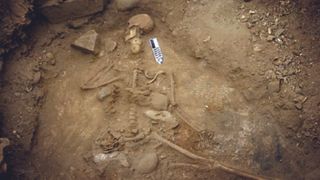
Drowned Stone Age fisherman examined with forensic method that could rewrite prehistory
By Mindy Weisberger published
Tiny marine algae lingered in the bones of a fisherman who lived 5,000 years ago, and they reveal that he drowned in salt water.

Ukrainian scientists leave international climate report committee, amid safety fears
By Mindy Weisberger published
The Russian invasion of Ukraine has led top Ukrainian scientists to withdraw from final approvals of a landmark climate report.
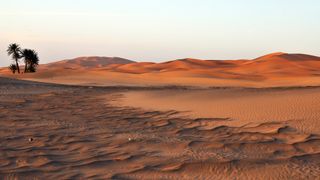
The Sahara: Earth's largest hot desert
By Rachel Ross published
Reference The Sahara desert is the largest hot desert in the world, covering nearly all of northern Africa.
Get the world’s most fascinating discoveries delivered straight to your inbox.
